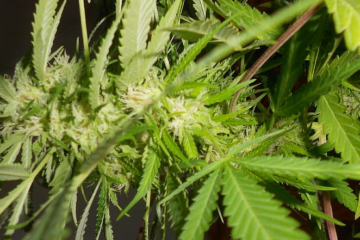South Dakota is set to make a pivotal decision this November as the state’s voters will once again cast their ballots on the legalization of recreational cannabis. This marks the third attempt to pass such legislation, reflecting a persistent divide in public opinion and a dynamic shift in the state’s approach to cannabis use.
The Journey to the Ballot
The road to the November ballot has been a long one for recreational cannabis in South Dakota. Previous attempts to legalize it have seen a mix of success and setbacks, with a 2020 approval overturned by the court and a 2022 initiative rejected by voters.
The persistence of advocates has led to the current Measure 29, which proposes legal possession, growth, and distribution of marijuana for adults over the age of 21. The measure, however, stops short of establishing commercial sales regulations, leaving that to future legislative sessions.

The Debate Intensifies
As the ballot approaches, the debate among South Dakotans intensifies. Proponents argue for personal freedom and the benefits of regulation, while opponents raise concerns about social implications and the message sent to youth.
The dialogue reflects a broader national conversation about drug policy and reform. South Dakota finds itself at a crossroads, with the outcome of the November vote set to influence the state’s direction for years to come.
Implications and Expectations
The implications of the upcoming vote are significant. A ‘yes’ could signal a shift towards more liberal drug policies, while a ‘no’ might indicate a preference for the status quo or a more cautious approach to legalization.
Expectations are high on both sides of the issue. Advocates hope for a historic change, while opponents prepare to reinforce their stance. The decision will not only affect South Dakota but also contribute to the national narrative on cannabis legalization.



